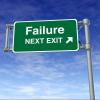learning
 |
Maximizing Agile by Understanding Learning Styles To be most agile with your communication, understand several models of learning styles, where you fit into them, and where your team fits into them. By tweaking the ways you communicate to fit the information and the situation, you are helping your team remain agile by valuing people and interactions over processes. |
|
 |
The 3 Kinds of Learning That Influence Your Work The degree of confidence in your knowledge may vary, often due to the process you went through to learn the concept. An understanding of how different learning techniques affect the depth of your knowledge can help you with how you process information you already have and how to approach learning new things. |
|
 |
Lessons Learned (and Unlearned) at STARCANADA 2018 With a week full of sessions, tutorials, training classes, and events, the STARCANADA software testing conference had plenty of takeaways. Some highlights: what jobs will look like in the future with AI, why testers should lead efforts to make quality everyone's responsibility, and the importance of unlearning. |
|
 |
If You Want Training to Take, Explore Experiential Learning People typically think of training classes as passive activities, where the instructor talks and the others listen. But experiential learning, where you learn through hands-on activities and then reflect on the experience, often gets the lesson to stick in people's brains better. Consider using interactive lessons. |
|
 |
Make Time for Learning with Deliberate Practice As software professionals, we need to work continuously to improve our skills. But two common challenges are how to best work to improve, and how to find the time to learn when we’re busy. The answer is deliberate practice—practice with a clear goal and defined measures for success that pushes your usual boundaries. |
|
 |
In Praise of Failure Failure is measured by expectations. If we aim to be perfect, or set the expectation that only perfection is acceptable, we risk losing opportunities to get valuable feedback. Creating an expectation of perfection can lead to stagnation, not success. Instead, view failure as a learning experience. |
|
 |
An Agile Mindset: Learning Early, Not Failing Fast Agile encourages teams to continuously improve through learning. One of the phrases associated with this process is "failing fast"—trying new things and taking lessons from mistakes as you go. But Johanna Rothman thinks "learning early" is a better phrase. That change in terminology can give you a happier mindset. |
|
 |
Learning On: Making Time for New Software Skills Ongoing learning will help you remain relevant as the industry evolves, as well as be more productive at your job—but it can be hard to find the time. Steve Berczuk gives you some tips on how you can fit in education, what you can do to improve your skills, and what pitfalls to be sure to avoid. |




